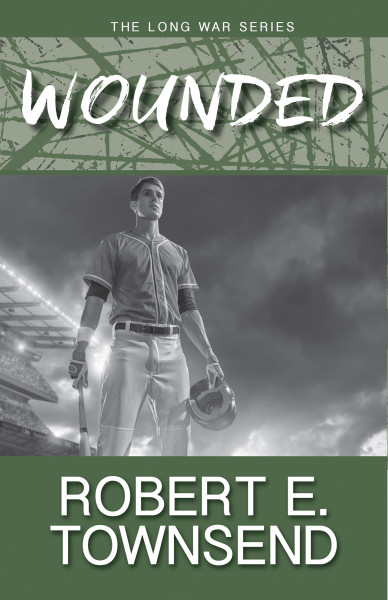Robert Olen Butler (A Small Hotel)
I mean being a writer is like being a psychoanalyst, but you don’t get any patients. Al Alvarez
Robert Olen Butler’s novel A Small Hotel is a gem. It is a diamond. It is an intense moment-by-moment psychological study of a married couple, Michael and Kelly Hays.
First, full disclosure. In 1993 Robert Olen Butler taught a two-week fiction class at the Iowa Summer Writer’s Workshop during heavy and continuous summer rains which made Iowa appear from space as the sixth Great Lake. I attended it. Robert is among a hand-full of great teachers I’ve encountered in my six decades of on-and-off formal studies. Many consider him America’s greatest living writer of literary fiction. Perhaps. I haven’t read all of America’s living writers of literary fiction. That I admire his writing I affirm.
Second, book reviews often tell us more about the reviewer than the reviewed. We’ll see about that shortly.
In A Small Hotel Michael Hayes, a lawyer, cannot articulate the word; Kelly, a society matron, can not comprehend its meaning.
So what is all this trouble with the meaning of words? What is ROB driving at?
We know that misunderstanding between languages is inevitable. Multilinguists understand that the translation of meaning is tricky business; I read and speak Russian well for a Wisconsin farm boy; but when I read Sergei Kotlar’s translation of my novel Spirit Falls I am reading a separate artistic creation, a different novel in Russian than English.
Mutual understanding is hard enough when we speak a common language. In Vietnam during a period of long rainy-season boredom some officers in my squadron produced a casette-tape which became an all-SEA hit. In it an Air Force captain speaks a foul-mouthed, dialect- and jargon-laden monologue on life, ground attack and current affairs which a smooth talking public affairs officer periodically interrupts with “what the captain means is…” and translate the words into Washingtonese.
‘ha ha ha,’ I know both were speaking English, but we didn’t understand a %@& word.
During the Brezhnev era, Russia’s artistic avant guarde embraced the phrase In the beginning was the Word, (King James Bible (Cambridge Ed.)) as the core of their discourse in order to hold words to their meaning against Communist organized corruption of the language.
Meaning elides. Kelly and Michael are two people, much less two peoples, separated by a common language.
A Small Hotel maintains uninterrupted over 97.3% of the book the emotional intensity of a diamond-like poem. Little happens; much happens, i.e., literary fiction.
That unpleasant people in America champion literary fiction does not render the genre unworthy of reading. It is fundamental truism of logic that the source of a truth is irrelevant to its intrinsic truth. That the greatest idiot alive asserts the sun is shining does not extinguish the sun.
Literary fiction? What is that? It is that which Robert Olen Butler writes; others either approach or do not approach his mastery.
So somewhere at about where 6.7% of the novel remains, there is a crisis. One character has an epiphany.
It did not convince me.
I have been Michael; I have been married to Kelly. I have paid tens of thousands of compliments and tens of thousands of dollars to marriage counselors to learn to say ‘love’ with proper intonation while speaking Washintonese and have said the WORD and was willing to say, sing, shout and dance the WORD until the Intergovernmental Panel on Climate Change certified incontrovertibly that hell had indeed frozen over … and nothing, absof##kinglutely nothing changed.
I mean, for Christ’s sake, …
Then I understood. One character had the epiphany; the other was out cold in a drug and alcohol-induced coma. The pages end. The story goes on. Ah, Robert, now I understand.
Why do we read?
Escapism? It certainly allows us to pass the time agreeably. My child––an adventurous one she is––has lived in India and Africa and the Middle East; I visit her. I fly second class, don’t sleep well even in first class cattle cars and don’t watch most movies a second time. I assure you twenty hours even in plush Etihad Airlines is like two hundred hours. Books pass the time, or rather a book neither too light nor too heavy. Georges Simenon’s Inspector Maigret series managed three trips—India, United Arab Emirates, Rwanda–– quite nicely thank you.
An awareness that you are not an odd duck? We discover that love had not first appeared on the earth at that moment when I caught sight of Sue Wagner striding into Mr. Rossmiller’s homeroom in Merrill High School in 1961. And others too have survived the disdain of the busty fifteen-year old blond.
To read Gilgamesh in Pre-Sumerian Mesopotamia, Homer’s Iliad or Karl Marlantes Matterhorn is to understand you are not the first to suffer post traumatic stress disorder. You were probably not even the first to collapse bawling against the Vietnam Memorial before your pre-school children ten years post freedom flight.
One reads to be introduced to a wider world beyond provincial downtown Manhattan, NY or Madison, WI or even our seemingly cosmopolitan Rhinelander, Wisconsin. It is a familiar world, everywhere.
But why read Robert Olen Butler?
One reads to find the words, which articulate the experience. And therein one encounters a mystery. Experience illuminates ones reading; reading illuminates ones experience.
And one reads ROB in order to learn how with the written word one delves into the souls of men and women . For my dollar few save Dostoevsky and Turgenev and Flaubert and Proust do it as well.
A Small Hotel? It is five stars in my Michelin review. Is it the best of ROB? I will always prefer his A Good Scent from a Strange Mountain. My wife prefers They Whisper or A Deep Green Sea.
A Small Hotel brings to mind a poem from America’s poetess-laureate of the, to use the G.I.–in–Germany word, uptafücked American couple. In her collection, Girl Hurt, E.J. Laino recollects:
We agree our mother was perfect
for our father. He could not receive
love. She could not give it.
I force my arms under the blades
of his shoulder, pulled his ninety-pound body
close to mine, whispered
I love you, how our father squeezed his eyes shut,
And pulled away,
with all the strength of the dying.
Elijah and the Widow in the collection, Girl Hurt, by E.J. Laino
This is good stuff. I endorse it.







